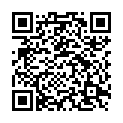|
|
|
| Module code: E2306 |
|
|
1V+1U (2 hours per week) |
|
2 |
| Semester: 3 |
| Mandatory course: yes |
Language of instruction:
German |
Assessment:
Written exam
[updated 08.01.2020]
|
E2306 (P211-0068) Electrical Engineering and Information Technology, Bachelor, ASPO 01.10.2018
, semester 3, mandatory course, technical
|
30 class hours (= 22.5 clock hours) over a 15-week period.
The total student study time is 60 hours (equivalent to 2 ECTS credits).
There are therefore 37.5 hours available for class preparation and follow-up work and exam preparation.
|
Recommended prerequisites (modules):
None.
|
Recommended as prerequisite for:
|
Module coordinator:
Dr. Julia Frisch |
Lecturer:
Miriam Wedig, M.A. (lecture)
[updated 18.07.2019]
|
Learning outcomes:
The three English modules are to be seen in conjunction with one another. They provide students with a framework in which to develop their job-related English language skills from the entry level B1 to level B2. This module focuses on oral communication skills for electrical engineers. After successfully completing this course, students will have insight into the differences between international working environments, in particular English-speaking ones, and will be able to describe professional tasks. They will be able to recognize difficulties and conflicts in intercultural communication situations and draw conclusions for their own behavior in international contexts. This will enable them to use the right communicative means of speech and behavior in various oral communication situations.
[updated 08.01.2020]
|
Module content:
- Greetings, introducing oneself, small talk - Describing your career, activities and company - Making appointments- Making phone calls in a professional context - Understanding and writing (telephone) notes In addition: - Vocabulary - Repetition of the relevant grammatical structures - Raising awareness for the functional use of language - Intercultural aspects
[updated 08.01.2020]
|
Teaching methods/Media:
Teaching and learning materials (print, audio, video), multimedia teaching and learning software for specific target groups
[updated 08.01.2020]
|
Recommended or required reading:
[still undocumented]
|


